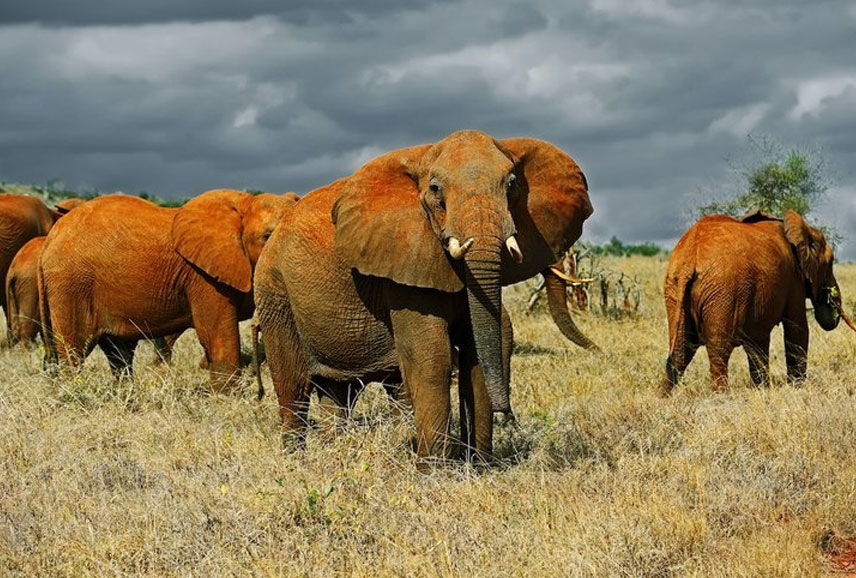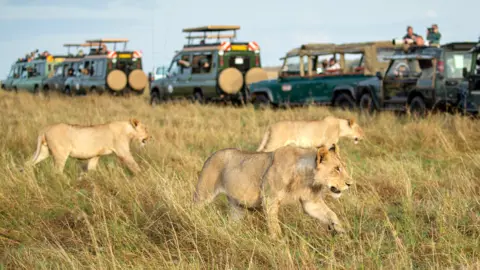To ensure that your trip to Mombasa is enjoyable and hassle-free, you should be aware of all security and safety concerns. Be aware of these important points:
1. General Safety
Stay informed: Keep abreast on local news and any travel advisories that are issued by the country you live in.
Register with Your Embassy: If it is applicable you are eligible, sign up with your embassy or consulate in Kenya in order to assist you in case of an emergency.
2. Health Precautions
Immunizations - Make sure you have received all of the vaccinations you receive regularly. Additionally, you should consider getting additional vaccines for Hepatitis-A, Hepatitis-B, Typhoid Fever and Yellow Fever.
Mombasa's malaria is endemic. Make use of insect repellents and antimalarial medication, rest under mosquitonets, and wear long-sleeved clothing at night.
Water and Food Safety Take boiled or bottled water, stay clear of ice cubes, and eat cooked food. Be cautious with street food.
3. Personal Safety
Be cautious when walking in the dark. Stick to areas that are well lit and well-populated. Avoid walking on beaches or in secluded areas after dark.
Secure Your Important Items Hotel safes are a good option for passports, cash, and other valuables. Avoid displaying expensive items like electronics or jewelry.
Use Reputable Transport: Opt for registered taxis, ride-hailing services or transportation provided by the hotel. Avoid unmarked taxis.
4. Local Laws and Customs
Dress modestly and respectfully Particularly when visiting religious locations. Be aware of local customs and traditions.
Kenya has strict laws on drugs and harsh penalties. Avoid taking illegal drugs.
Photography: Ask for permission before you photograph people, especially in rural settings or near government and military facilities.
5. Beach Safety and Water Safety
Be safe in the water: Follow local advice on swimming conditions and currents. Use designated swim areas.
Marine Life: Be careful of marine animals like jellyfish and Urchins. If you are walking along the beach, wear appropriate footwear.
6. Crime Prevention
Petty Criminals. Bag snatching, or pickpocketing can happen, especially in areas that are populated with lots of people. Be aware and keep your valuables within reach.
Scams: Beware of strangers offering overly generous assistance or deals that seem too good to be true. Use only tour operators who are licensed.
Keep emergency contact numbers handy such as Fire (999) (999), Police (999) or Ambulance (9999). Keep the contact numbers of your country's embassy or consulate in your pocket.
7. Natural Hazards
Weather: Mombasa is a tropical city that experiences heavy rains especially during the rainy season (April-June and October to November). Be conscious of weather forecasts.
Sun Protection Sun Protection: Wear hats and apply sunscreen to prevent sunburn as well as heat exhaustion.
8. Travel Insurance
Comprehensive Coverage: Ensure that you are covered by travel insurance that covers medical emergencies, theft, loss or disruption to travel. Make sure your insurance policy covers activities such as watersports.
Enjoy your vacation in Mombasa without stressing about security or safety, by keeping these suggestions in mind. View the recommended Sgr transfer to Mombasa Airport for website advice including tour company, kenya safari beach, safari trips in kenya, afri safari, african safari africa, holiday packages mombasa, kenya travel, tours safari africa, holiday packages mombasa, mombasa packages and more.

What Weather Considerations Do I Need To Know When Holidaying In Mombasa, Kenya?
If you are planning a trip to Mombasa, Kenya, understanding the local weather patterns is vital for packing appropriately and making the most out of your time. Here are the main aspects of the weather.
1. Climate Overview
Mombasa's tropical climate is hot and humid throughout the year. The temperatures typically range from 24degC to 32degC.
2. Seasons
This is a time of high temperatures, and high humidity. This is also the most popular tourism season, especially in January and December.
Long Rains: (April-June) The rainy season is characterized by heavy rainfalls and thunderstorms. Roads can get slippery and difficult to navigate. The season is not busy for tourists.
The cooler season (June-October) is ideal to travel during, as temperatures are less and the humidity levels are lower. The weather is generally pleasant, making it ideal for outdoor pursuits.
Short Rains (October October - November) They are short showers of rain that are less intense. The rains will usually be brief-lived, and then followed with a few sunny days.
3. Tips for packing
Lightweight Clothing - Pack clothes that's breathable and lightweight such as cotton or linen to stay cool when the weather is hot.
Rain Gear: If traveling during the rainy seasons make sure you have waterproof clothing along with an umbrella, as well as footwear that is waterproof.
Sun Protection: Use sunscreen that has an SPF of high. Wear a broad-brimmed glasses and a hat. Wear clothing that covers your skin.
Swimwear: Bring your swimwear to the beach or hotel pool.
4. Weather-Specific Activities
Beach Time: The ideal time to be at the beach is during the cooler months (June-October), when the weather and conditions are pleasant.
The crystal clear, calm waters from November through March is perfect for snorkeling or diving, as well as other water sports.
Wildlife viewing: When the weather improves and the sun is shining, it's a perfect time to go on safaris or nature excursions.
5. Health Considerations
Be sure to drink plenty of water. The hot and humid conditions will force you to drink plenty of water. Drink plenty of fluids, particularly during your time outdoors.
The heat-related illnesses: Be aware to the risks of heat stroke or heat exhaustion. Wear loose clothes and frequent breaks in shade. Avoid strenuous activities during the peak heat.
6. Adjustments for Travel
Travel during the rainy seasons It is important to be ready for travel disruptions if you are visiting during this time. Some roads may be impassable, and outdoor activities could be restricted.
Flight Delays: Tropical rains may cause delays on flights. Prepare contingency planning and stay informed of your travel schedule.
7. Environmental Concerns
Natural Risks: Be aware the potential for flooding during heavy rains. Be aware of the current weather conditions, and seek local advice on security.
Tide Awareness: When you plan to do beach activities Be aware of tides that can change drastically. Consult your local tide schedules before swimming or beachcombing.
Knowing these weather conditions will help you organize your plans and packing appropriately, so that you can have fun in Mombasa safely. Follow the recommended kenya safaris Afrika for site recommendations including africa tours and safaris, kenya tourism, kenya travel, tour mombasa, mombasa tour companies, kenya safari and beach packages, tour company, kenya safari and beach, tours & safaris, tours and safaris and more.

What Safari And Tour Planning Do I Need To Know Before I Travel To Mombasa, Kenya?
If you are planning a holiday in Mombasa (Kenya) it is essential to organize your safari or tour with care. This will guarantee an enjoyable and pleasant experience. These are the essential aspects to consider when planning a safari or tour in Kenya's Mombasa:
1. Picking the right Safari or tour operator
Reputation: Choose an operator with good reviews. Choose tour operators who are members of the Kenya Association of Tour Operators.
Compare packages from different tour operators. Packages range from budget-friendly to luxurious and can differ in terms of length and activities included.
Guides: Ensure the operator has guides who are experienced and knowledgeable, preferably with certification from appropriate bodies.
2. Popular Safari Destinations Starting from Mombasa
Tsavo National Park one of the biggest game reserves in Kenya which is divided into Tsavo East and Tsavo West. The park's varied wildlife includes elephants, rhinos and lions.
Amboseli National Park has a massive elephant population, as well as stunning views of Mount Kilimanjaro.
Shimba Hills National Reserve. It is located close to Mombasa. The reserve has scenic views and the chance of spotting rare species like the Sable Antilope.
Maasai Mara. Although further away from Mombasa but the Great Migration is celebrated in this area and provides an unforgettable experience with wildlife.
3. Safaris and Tours Types
Game Drives. Traditional safaris usually involve 4x4 game drives, which offer close encounters with wildlife.
Walking Safaris: These guided tours are an excellent method to get out into the forest and learn more about the creatures and plants.
Balloon Safaris are available in specific parks, like the Maasai Mara. They offer an aerial view of wildlife.
Beach and Bush Combos Beach and Bush Combos Combine the experience of a safari with a relaxing time on the gorgeous Mombasa beaches for an unforgettable experience.
Cultural Tours: Include visits of local villages or historical sites such as Fort Jesus, Mombasa Old Town and Fort Jesus.
4. Timing & Duration
Best Time to Visit : Wildlife viewing is best in the dry season from June to October. Wildlife gathers near water sources. The Great Migration takes place in the Maasai Maasai usually between July-October.
Safaris can be booked in various lengths, from day trips to weeks-long adventures. Think about how long you'd like to be in the wilderness, and the time you have available.
5. What to Pack
Wear clothing that is lightweight and breathable, in neutral shades. Wear long sleeves and pants to provide nighttime protection from mosquitoes.
Shoes: Comfortable walking boots or shoes are essential, particularly when you go on walking safaris.
Accessories: Bring sunglasses, a hat with a wide-brim, sunscreen, and insect repellent.
Equipment: Binoculars as well as an appropriate camera that has extra batteries and memory cards are crucial for wildlife viewing and photography.
Take all medications you require. Take into consideration bringing antimalarial medicine and a basic first aid kit, as well as any other medication you might need.
6. Health and Safety
The vaccinations. It is essential to be vaccinated according to the recommendations.
Malaria Prevention Utilize insect repellents, wear long-sleeved clothing at night and think about anti-malarial drugs.
Food safety and water: Drink purified water, bottle it or purchase it from a trusted restaurant.
7. Costs & Payments
Budgeting Safaris can be costly Therefore, plan your budget carefully. Consider all-inclusive vacation packages that include accommodation, meals and other activities.
Most operators accept payment via debit or credit card. Check the payment method as well as any deposit that is required.
8. Environmental and Ethical concerns
Eco-friendly Operators: Choose operators who are committed to implementing sustainable practices.
Wildlife Protection: Take care of the animals by ensuring they have a safe space, and avoiding disrupting them. Beware of buying products made of endangered species.
9. Travel Insurance
Insurance for travel should cover safari activities, medical emergencies, and possible travel disruptions.
10. Booking Confirmation
Safaris can be very popular and they book quickly especially during peak season. Make reservations early.
Confirmation Confirm the itinerary, pickup times and contact information with your travel agent.
Consider these factors to plan an enjoyable and organized safari experience or tour from Mombasa. This will enhance your holiday in Kenya. See the most popular best holiday destinations in kenya for blog examples including mombasa travel agency, africa in kenya, safari mombasa kenya, cheap kenya safari packages, travel & tours company, kenya beach and safari holiday, kenya beach and safari holiday, mombasa tours, kenya safari holiday packages, safaris beach and more.
